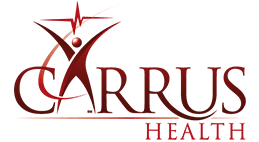 Congestive heart failure happens when the heart muscles are pumping inefficiently due to fluid buildup around the heart. It’s best to get tested, especially if you are at high risk for the condition or have a family history of it. Coronary artery disease, high blood pressure, and a history of heart attacks are all signs that you may be at a higher risk for congestive heart failure. If you smoke, drink excessively, have diabetes, or kidney disease, you are also at a higher risk.
Congestive heart failure happens when the heart muscles are pumping inefficiently due to fluid buildup around the heart. It’s best to get tested, especially if you are at high risk for the condition or have a family history of it. Coronary artery disease, high blood pressure, and a history of heart attacks are all signs that you may be at a higher risk for congestive heart failure. If you smoke, drink excessively, have diabetes, or kidney disease, you are also at a higher risk.
Heart failure doesn’t necessarily happen suddenly. It can be chronic, in which case you won’t necessarily know what’s going on unless you monitor yourself for signs and symptoms. These include:
- Shortness of breath, even when resting
- Reduced ability to exercise, perform regular chores, and move around
- A rapid or irregular heartbeat
- Persistent coughing or wheezing
- Weight gain as a result from fluid retention
- Chest pain
If you notice these symptoms, see a doctor immediately. You will need to get examined and tested for the possible underlying cause of your symptoms. So, how is congestive heart failure diagnosed? Here are a few examples of the tests a doctor can perform to diagnose you. You will not need all of them to get diagnosed. Your doctor will determine which combination of tests are best to get accurate results.
Blood Test
Through a blood sample, your doctor can identify certain biomarkers that point to heart failure. A blood test can reveal your cholesterol levels and determine if you have anemia. A blood test can also determine if you have good kidney and thyroid function.
Chest X-Rays
X-rays are another common testing procedure for congestive heart failure. An X-ray can reveal an enlarged heart and congestion in the lungs.
Electrocardiogram
An electrocardiogram (also called EKG) is a test that involves the placement of electrodes on your chest to record heart rhythm, heartbeat frequency, and electrical conduction. An electrocardiogram can reveal a thickening of the left ventricle or an abnormal heartbeat rhythm – which are signs of congestive heart failure.
Echocardiogram
Also referred to as an echo, this test utilizes ultrasound technology to examine the heart structures and movement. It can reveal a thickening of the heart muscles and whether your heart is pumping efficiently.
Cardiac Computerized Tomography Scan
Also called a CT scan, this exam involves you getting an imaging test done inside a machine that’s shaped like a doughnut. Using X-ray technology, the machine takes pictures of your heart and chest. It can reveal an enlarged heart, weakened muscles, and problems with heart function.
Exercise Stress Test
An exercise stress test involves being hooked up to a heart monitor and possibly a treadmill to simulate exercise. It shows the doctor how your heart responds to exercise and whether the response is normal. This test can also reveal if you have reduced blood supply in the heart.
Carrus Health Advanced Radiology Department
At Carrus Health, we provide the imaging tests you need for a clinical diagnosis of congestive heart failure. We currently offer CT Scans, X-rays, and ultrasounds to diagnose your condition. Our radiology facility in Sherman, Texas is spacious, clean, and comfortable.
To schedule an appointment, please call Carrus Health at (903) 870-2600. Our friendly staff looks forward to assisting you.
